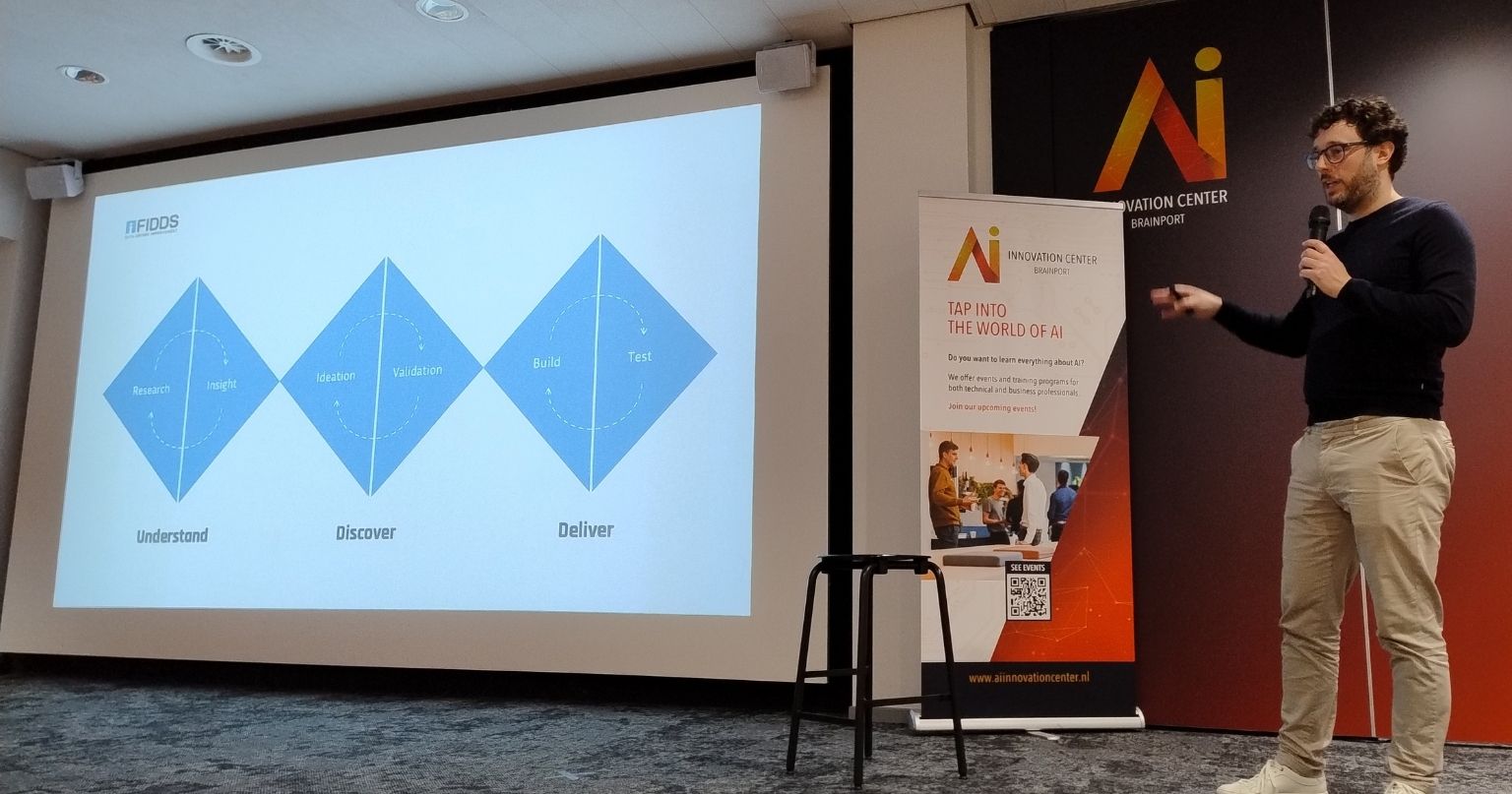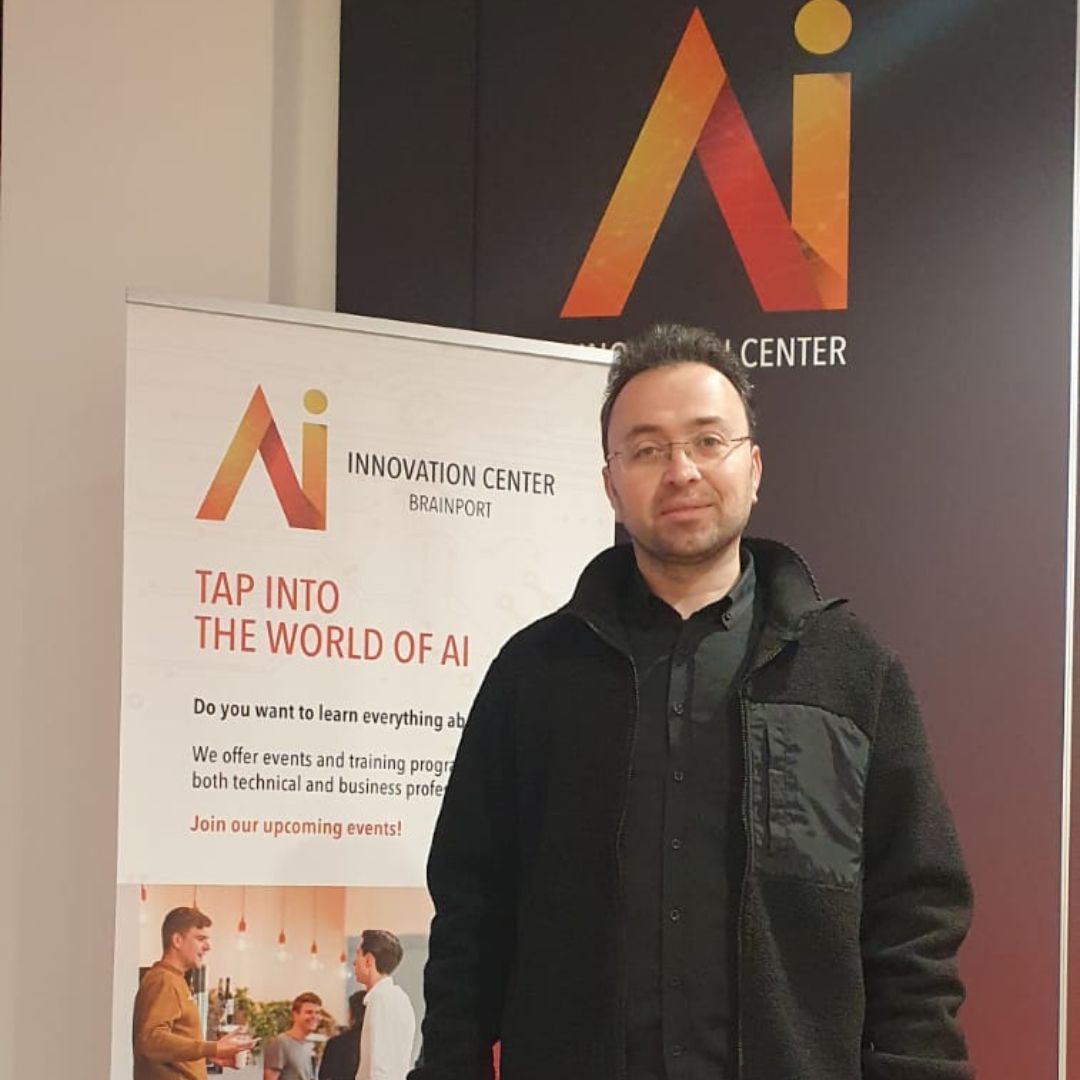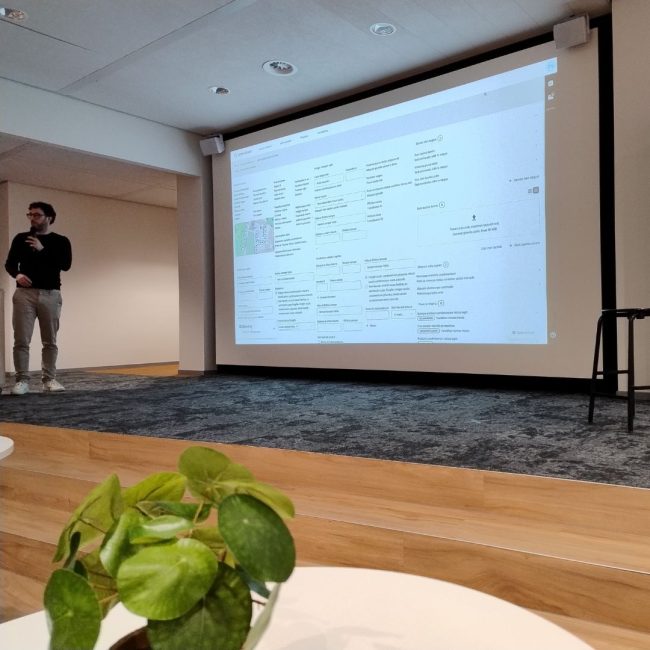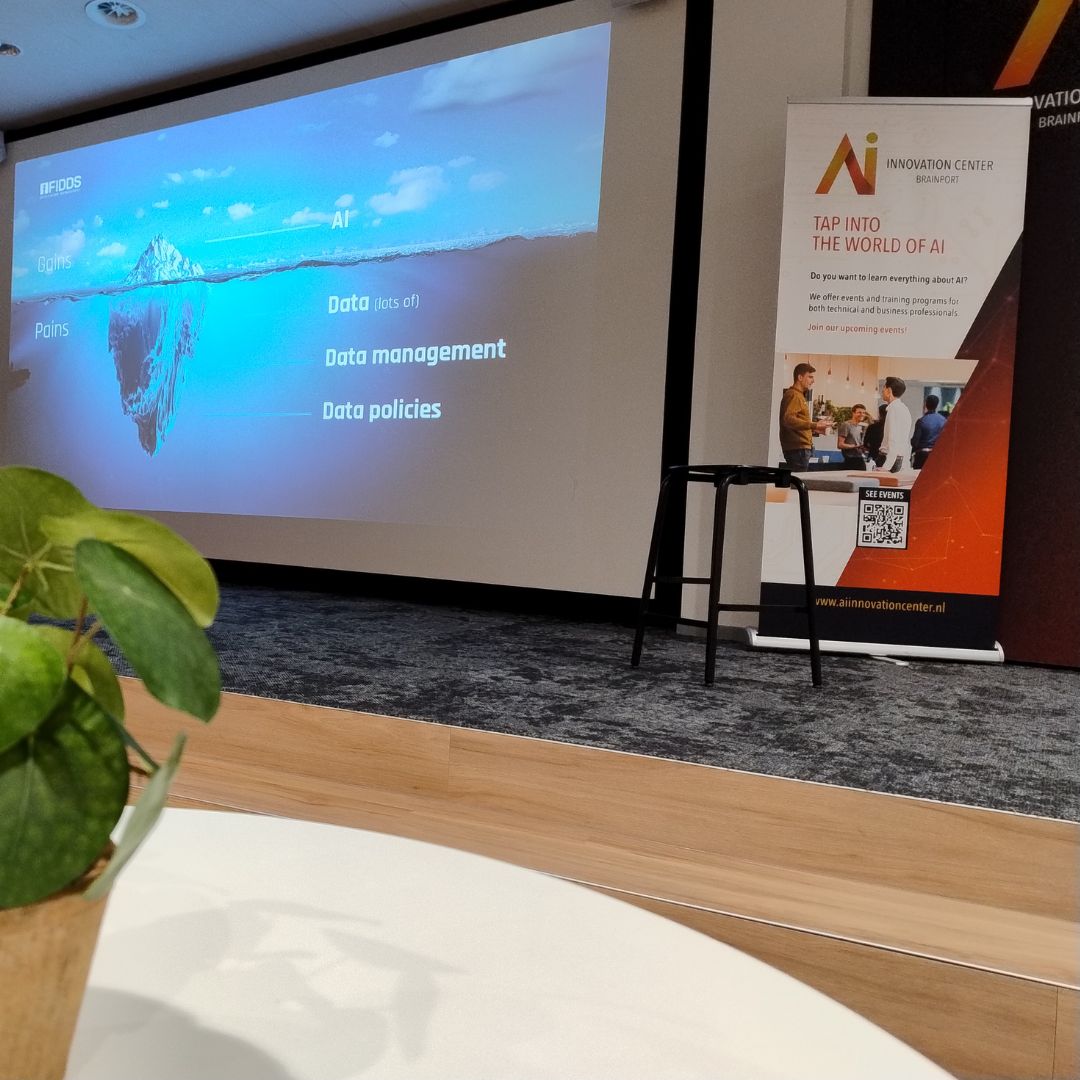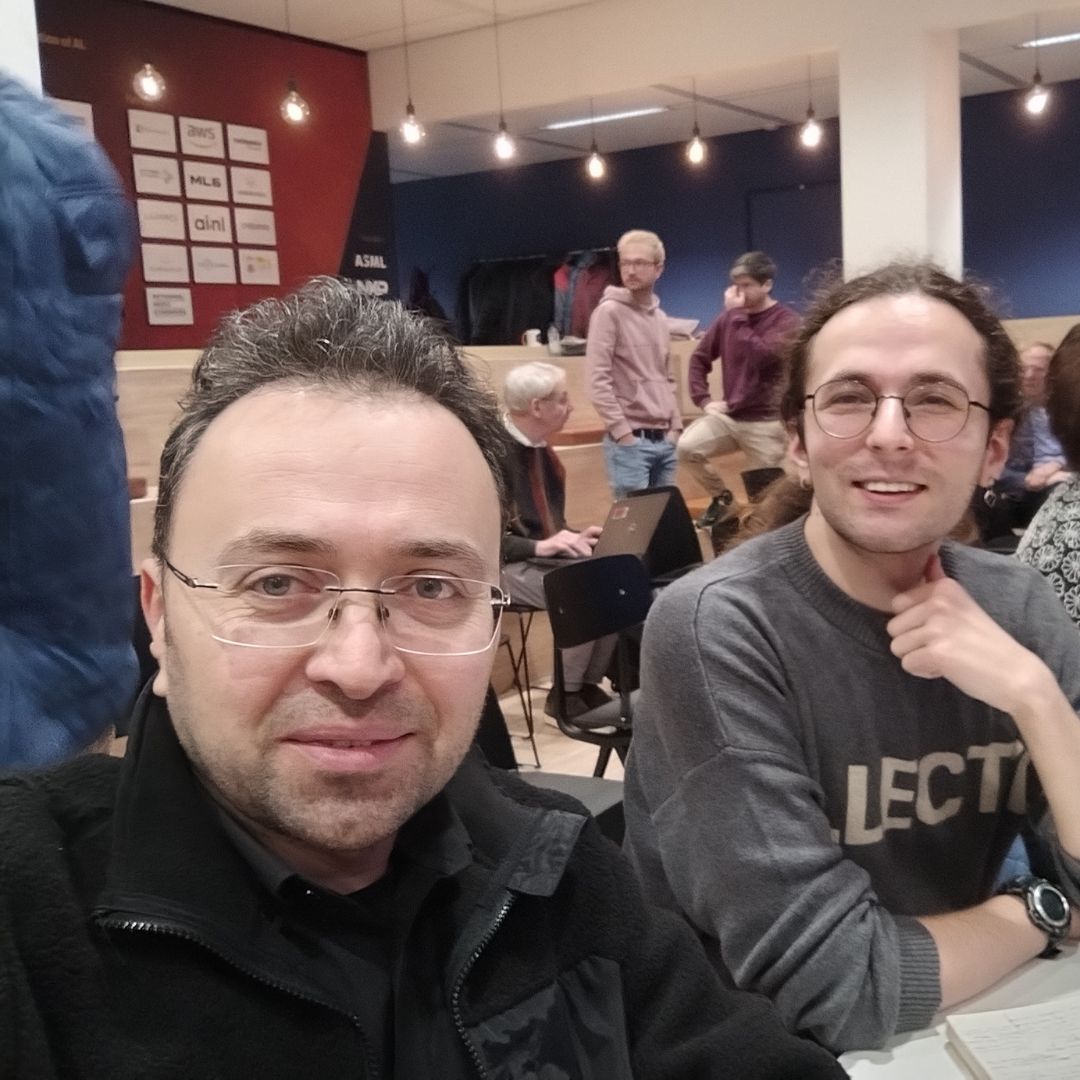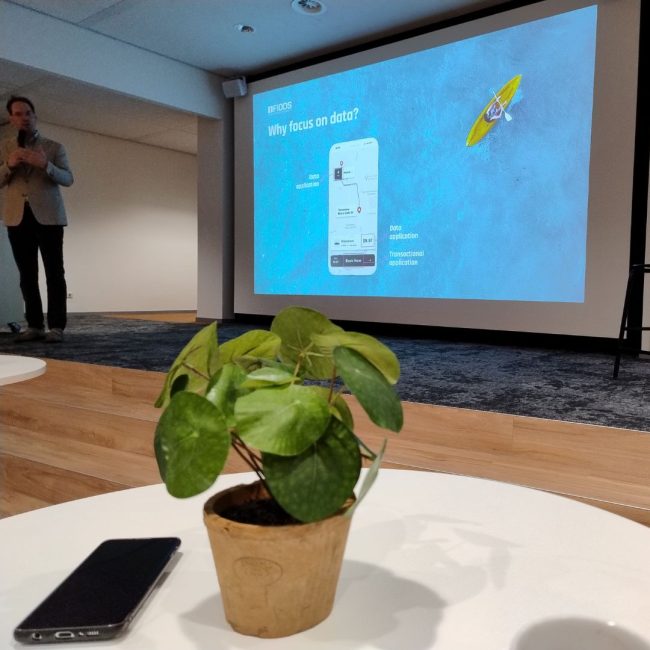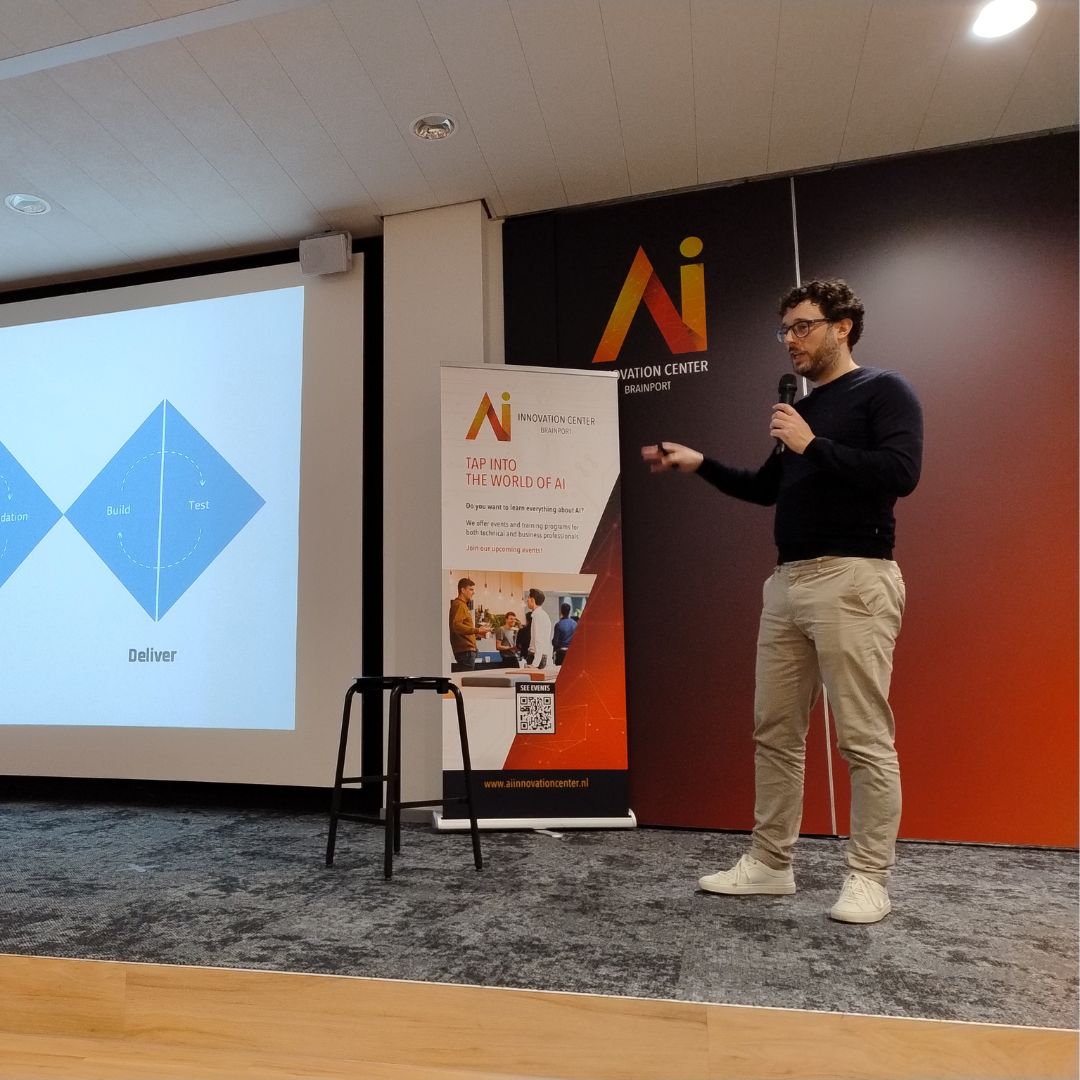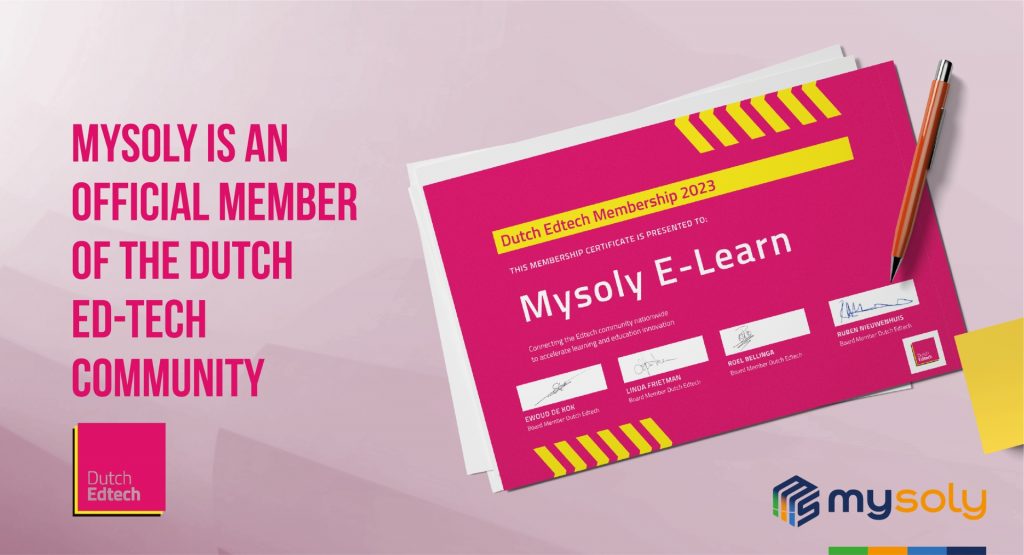Our Participation in the AI Innovation Center
Our Participation in the AI Innovation Center
Date: 16 January 2025
Keywords: #AIInnovationCenter #Mysoly #ArtificialIntelligence
Place: AI Innovation Center, High Tech Campus Eindhoven (HTC 5)
We are delighted to share that Mysoly participated in the AI Innovation Center event. We extend our gratitude to Antoine de Wispelaere and Jochem van Kapel for their inspiring talks. Below, we have summarized the key topics discussed during the event:
1. AI and User Convenience
As the world transitions from Cloud technology to AI-driven solutions, products and user behaviors are undergoing significant transformation. AI introduces unprecedented opportunities to personalize experiences and streamline operations. For technology providers, the challenge lies in designing intuitive, accessible, and scalable solutions that cater to diverse user needs. By focusing on user-centric design, AI can seamlessly integrate into daily routines, improving both productivity and satisfaction.
2. Data Management
Managing data effectively is the backbone of any AI-driven system. From collection to transformation and loading (ETL), each step demands precision and compliance with stringent data policies. Beyond technical execution, organizations must prioritize data security, scalability, and adaptability to handle the increasing volume and complexity of data. Successful data management strategies focus not only on infrastructure but also on fostering a culture of data literacy and accountability.
3. Customer Experience and Data Management
Customer experience is no longer just a design consideration; it’s a strategic asset. Effective data management is integral to delivering seamless and personalized experiences. Organizations must align their data strategies with user needs, ensuring insights are not only accurate but actionable. By integrating customer feedback into data workflows, businesses can create AI solutions that are responsive, adaptive, and capable of exceeding user expectations.
4. Solution Generation
Innovation thrives on collaboration. Developing effective solutions requires input from diverse teams, including technical experts, business strategists, and end-users. Regular cross-departmental brainstorming sessions help uncover unique perspectives and anticipate challenges. The most impactful solutions are those grounded in real-world applicability, achieved through iterative testing and continuous stakeholder engagement.
5. Unsuccessful AI Solutions
AI solutions that fail to meet user needs often fall into two categories: overly complex systems that overwhelm users and high-cost implementations that lack tangible benefits. To avoid these pitfalls, developers must prioritize simplicity, relevance, and value. User feedback during development phases is critical for refining features and ensuring that the solution aligns with its intended purpose.
6. Developing Solutions Without Understanding the Problem
An effective solution begins with a deep understanding of the problem it seeks to address. Skipping this step often leads to fragmented or inefficient systems that create more issues than they resolve. A clear problem definition, supported by data-driven insights and stakeholder input, lays the groundwork for a targeted and sustainable solution.
7. The Importance of UI/UX
Design is the bridge between technology and its users. Even the most powerful AI systems can fall short if their interfaces are confusing or unintuitive. A thoughtful UI/UX approach can transform complex data into actionable insights, making it easier for users to engage with the product. A strong emphasis on user testing and iterative design ensures that the end product is both functional and delightful to use.
8. Making Daily Work Easier with AI
AI has the potential to revolutionize everyday workflows by automating repetitive tasks and providing intelligent recommendations. However, its success depends on thoughtful integration into existing systems. Clear objectives, user training, and ongoing support are essential to maximizing AI’s potential to enhance efficiency and reduce workload.
9. Internal Verification
The integrity of AI solutions hinges on their reliability. Before any output is presented to users, rigorous testing and validation processes must be in place. This includes not only technical checks but also evaluations of ethical considerations and bias mitigation. Internal verification ensures that the solution meets both functional and ethical standards, fostering user trust and satisfaction.
10. The Trust Issue in AI
Despite advancements, skepticism about AI remains widespread. Users often question the transparency and fairness of AI-driven decisions. To build trust, organizations must adopt transparent practices, such as explaining how algorithms work and ensuring accountability in case of errors. Establishing clear communication channels for feedback can further strengthen confidence in AI systems.
11. Responsible AI
While no technology is flawless, responsible AI development focuses on minimizing risks and maximizing benefits. This involves adhering to ethical guidelines, prioritizing inclusivity, and educating users about the capabilities and limitations of AI. By fostering awareness and encouraging informed use, organizations can ensure that AI serves as a tool for empowerment rather than exclusion.
During the event, we explored the transformative potential of AI, delving into its challenges and opportunities. Sessions like these emphasize the importance of adopting a responsible and user-centric approach to technology.
We extend our heartfelt thanks to everyone who contributed to the discussions and to the organizers for hosting such an inspiring event.
Mysoly | Your partner in digital!

